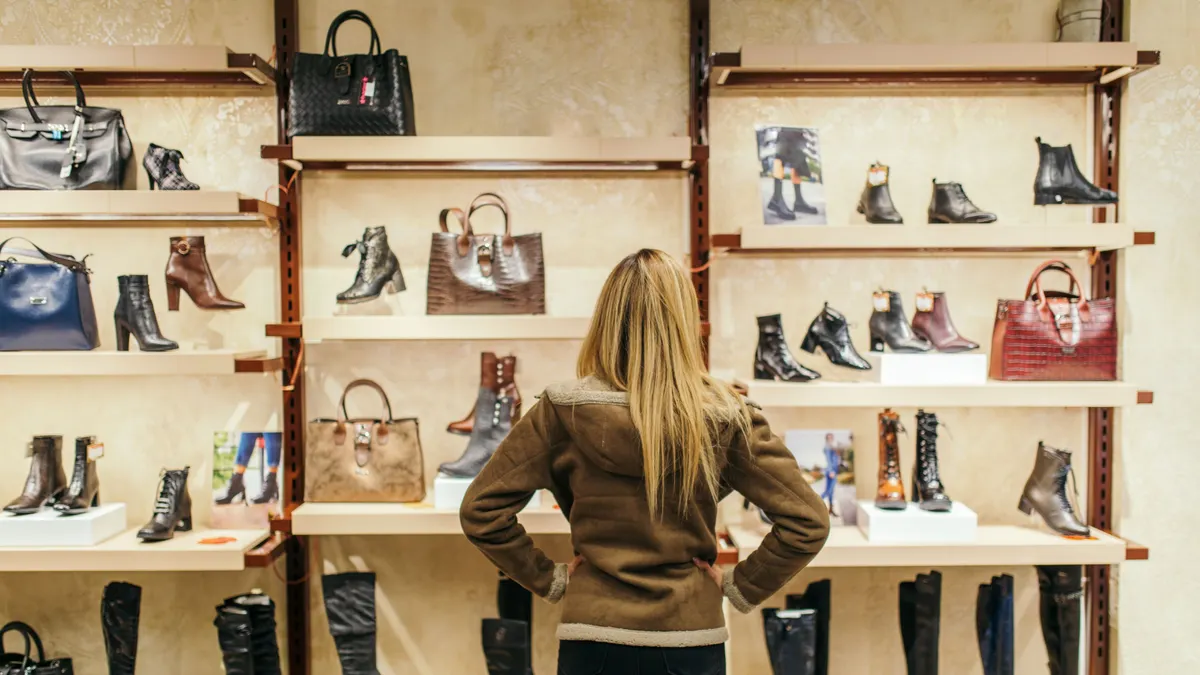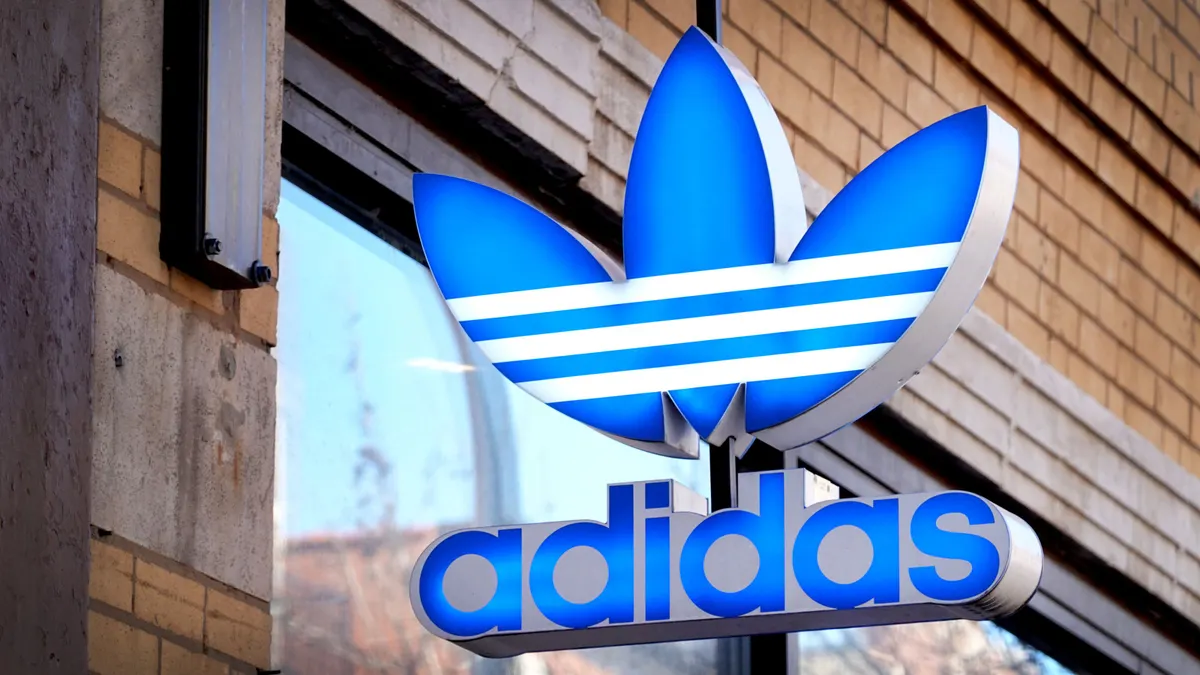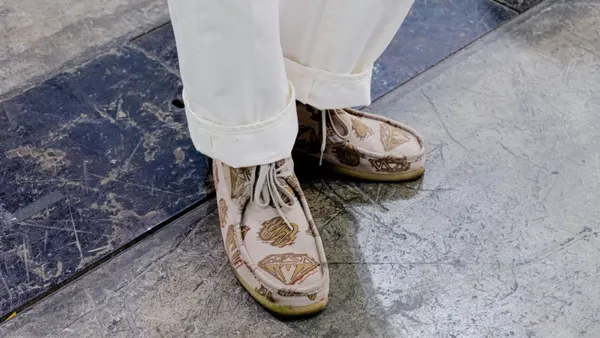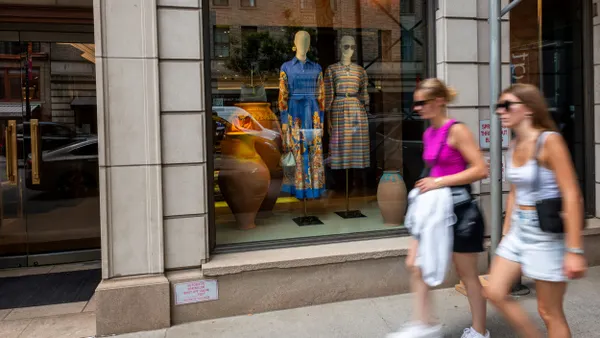Dive Brief:
- Consumers worried over inflation and tariff-related price hikes may be stepping back from shoe purchases over the next six months, according to the Spring 2025 AlixPartners U.S. Footwear Consumer Survey.
- The survey of 1,006 U.S. footwear consumers found that work and dress shoes could see spending decline 29% and 26%, respectively, this spring and summer. Athleisure shoe spending is expected to drop 17%, and casual shoe spending is projected to decline 16%, per the report.
- With price being top of mind, some 78% of surveyed consumers said they have already walked away from a shoe purchase this year. That’s 12 percentage points higher than in 2024. In addition, 59% of respondents said they wouldn't make a footwear purchase if the item was not on sale.
Dive Insight:
The study, conducted online between Feb. 28 and March 10 with U.S. footwear consumers ages 15 and older, found that shoppers who view buying new shoes a luxury and not a necessity planned to ease up on their purchases of most footwear. This includes athletic styles, which are typically a growth category for the sector.
“Athletics are usually the most resilient segment, but even those purchases have slowed,” Andrew Hogenson, managing director at Alix Partners said in a statement. He added that analysts projected a 9-point decline, although “price increases from aggressive trade policies could see [consumers] put the brakes on even harder.”
In a press release accompanying the survey, AlixPartners said that imports accounted for around 99% of shoe sales, and carried an average tariff of around 12% before the latest round of levies. Tariffs could also force companies to raise prices and pass those increases on to consumers, per the survey.
Matt Priest, CEO and president of FDRA said in the press release that the survey results confirm what the industry already knows, which is that consumer confidence is slipping and price sensitivity is peaking.
“With nearly 80% of consumers bracing for higher costs due to tariffs and nearly 8 in 10 walking away from a shoe purchase because of the price tag, footwear is shifting from a necessity to a discretionary expense for many families,” Priest said.
Global trade policies are forcing many footwear and athleticwear brands to alter their sourcing strategies or ask for relief from government-led tariffs. Nike, Skechers, and Under Armour were among 80 footwear brands that recently signed a letter this month from the Footwear Distributors and Retailers of America to U.S. President Donald Trump urging his administration to offer exemptions for the industry, which already has high import fees. With the new tariffs, some brands could see duties ranging from 150% to nearly 220%, according to the letter.











